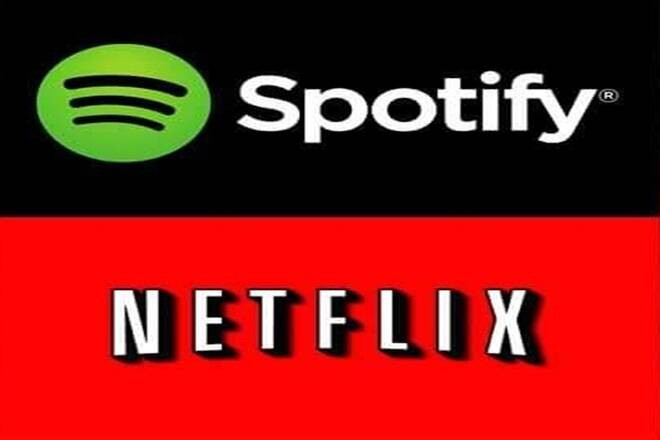(Published on Vietnam Law Magazine). In the 4.0 era, the physical border gradually becomes invisible but all of services and people’s demands are provided on the cyberspace – where there are not any border lines that may prevent any organizations, individuals who have an adequate capacity, passion and creativities from providing their own services across the world.
And the world has witnessed many companies, groups based in a country, but their services are used by millions or even billions of people on the world. Some leading may be mentioned like Google, Facebook, Twitter, Netflix, Spotify….

he common feature of these companies is to provide entertainment services via the Internet. With products that meet demands, tastes of the consumers and may extend the market to the world-across scope only by providing customers the capacity of accessing to their flatforms via applications, website on the private devices, such as smart phones, tablets, computers. Services and contents that are provided are very variable to meet demands of users from seeing films, listening to music, seeing music clips to sharing information, images and the connects of friends.
Formally, the development of information technology, the game becomes more balanced for all parties, as long as each party requires an equal opportunity in such balanced game if meeting requirements on technology, human resources and financial resources .etc.
However, in fact, not of all parties have the opportunity to equally compete with each other due to many factors. Legal barriers, in particular, licences – the typical sign of the existence of physical boundaries, in many cases become a barrier to the development of services in the 4.0 era and in Vietnam it is more evident than ever.
There used to be many opinions to assume whether Facebook, Twitter or Netflix, Spotify may become billion-dollar businesses or not, if these businesses are established and operated in Vietnam? Definitively, the answer is still “No”, because in fact, there is no billion-dollar companies in the field of providing services on the cyberspace to start up successfully in Vietnam. However, that does not mean we do not have favorable candidates to become unicorns in the future.
If a business desires to successfully develop, the first requirement is still that there are products meeting demands and tastes of consumers. If consumers feel adequately confident to the products and the quality of the products to meet their demands, they shall use the products.
Returning the above-mentioned issue, assuming that businesses with products similar to products of Facebook and Netflix operate in Vietnam, at first, these businesses are successfully obtaining a license to operate in accordance with the law, such as the license of establishing social network for products of Facebook, or the license of providing payable radio and television services for products of Netflix or the license of the provision of services on information content on mobile telecommunications networks for services like Spotify.

Apart from obtaining a license, companies must comply with a variety of other conditions, such as customer identification, authenticating information that customers provide, etc.
Not to mention the ability to comply with these conditions, putting in the position of the customer, if this is a new product or service without a reputation in the market, but the customer, who started using it, is mandatory to provide a range of sensitive personal information, it is whether such customer is comfortable to use this product or not in the context of that the market of the sale of consumers’ personal information is the market that is evaluated to be very active and almost no sanctions imposed on these behaviors.
In fact, registering accounts, like Facebook, Youtube or Spotify accounts, are very simple, which only need an email address, a username and an established code. If the customer would like to increase the security of the account, they can provide additional phone numbers for a two- step authentication to protect accounts when hijacked or unauthorizedly accessed.
After the customer that used the service is satisfied with the products, they are willing to provide their own personal information like Facebook, and after a time of using the service, Facebook requires users to authenticate their identify by snaping their identity papers and the users are completely satisfied on this issue.
However, the ability of compliance with conditions, such as the requirement “identify authentication” from the user as mentioned above must also be discussed. This requirement is regulated in some licenses that have been promulgated for a long time, but the method of how authenticating the identity of the user is prescribed unclearly. Until recently, the Government has started constructing a number of guiding documents on the methods and measures of authenticating the accepted users so that businesses may apply it in the process of providing their own services. This means that in a long time, businesses are still struggling with how to comply with the prescribed conditions. More specific, they are not able to comply with this requirement completely.
And yet, with the license, businesses shall be under the management of the licensed managing agencies and shall be periodically inspected/supervised in accordance with an already established plan under the regulations of Law on Inspection or accidental inspection if having violating signs. However, in fact, if businesses operate on many fields that have licenses under the management of many different
agencies, such businesses may have to receive many inspection teams. Hence, there were many times when many businesses, instead of focusing resources on business development, had to have a dedicated department to meet the requirements of these inspections. The above situation decreased after the Prime Minister of the Government gave opinions on not implementing many times of inspection, supervision with a business.
In the perspective of state management agencies, the management under licenses is a method of management and this is necessary in many fields. However, for the provided services on the cyberspace, these licenses have become an obstacle for domestic businesses and “create advantages”, “protection” for cross-border service providing businesses like Facebook, Youtube, Netflix.
If one party is bound by many conditions and requirements (domestic businesses) and another party is not bound by any conditions and requirements, even the tax obligations with the income account raising from Vietnam (cross-border service providing businesses). The requirements that these businesses must comply with regrading the Vietnamese Law is only “an optional” and they only implement the requirements of the competent authority of Vietnam when these requirements are compatible with their own “policies” and “standards”. Evidently, in this relationship, transboundary service enterprises have absolute advantages compared to domestic enterprises.
To solve this irrationality, Vietnam has promulgated the Cybersecurity Law, thereby there are clear regulations that cross-border service providing enterprises have absolute advantages compared to domestic enterprises. Thus, for foreign companies providing services on telecommunications networks, the Internet or value-added services on the cyberspace in Vietnam must open a branch or a representative office in Vietnam. However, this regulation is not still enforced in Vietnam. After more than one and a half years of entry into force, businesses that provide cross-border services still do not have branches or representative offices in Vietnam. And the State Agencies in Vietnam is still struggling with the imposition of sanctions that adequately deter these Vietnamese Law violating acts.
Vietnam also has promulgated the Law on the Tax Management and this Law shall come into force from the date of 1st July, 2020, thereby regulate obligations of Commercial Banks that must deduct and pay payable tax obligations in accordance with the tax law of organizations and individuals in foreign countries conducting e-commerce business activities generating income from Vietnam.
In the time of waiting the regulations of the Cybersecurity Law, the Tax Management Law and related documents enforced in fact in order to create a “relatively equal” competition environment, domestic businesses still have to accept the status of this reversed protection.
Download the full article bellow:

 Tiếng Việt
Tiếng Việt 中文 (中国)
中文 (中国) 日本語
日本語
